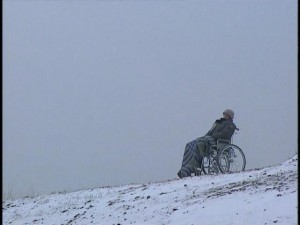

| Visitors Now: | |
| Total Visits: | |
| Total Stories: |

| Story Views | |
| Now: | |
| Last Hour: | |
| Last 24 Hours: | |
| Total: | |
Not So Slippery A Slope
 Could the availability of assisted suicide actually prolong life in some cases?
Could the availability of assisted suicide actually prolong life in some cases?
The Economist notes:
The prospect of the loss of autonomy, of dignity and of the ability to enjoy life are the main reasons cited by those wanting assisted suicide. Having the option of assisted suicide means that terminally ill people can wait before choosing to end their lives. That may have been what happened to Gloria Taylor, a Canadian assisted-suicide campaigner with Lou Gehrig’s disease (a degenerative illness). After winning a landmark court case four months ago that gave her a “personal exemption” to seek a doctor’s help to commit suicide at the time of her choosing, she died earlier this month—from natural causes.
Intuitively this makes sense.
And as for that slippery slope that the scaremongers are always brandishing, protections can be built in that ought to fence it off:
[F]or the limited measures introduced so far, safeguards abound and evidence of abuse is scant. Oregon’s legislation, introduced in 1998, is widely admired. Under it, an eligible applicant must be a mentally competent adult, suffering from a terminal illness and with less than six months left to live. His decision must be “informed”, meaning he must have been told about alternatives such as hospice care and pain control, and he must have asked his doctor at least three times to be allowed to die. A second doctor must review the case both for the accuracy of the prognosis and to certify that no pressure (from inheritance-hungry relatives, say) has been exerted.
That is too restrictive in some respects (it wouldn’t help those with locked-in syndrome, who can live on for decades), but the other protections make good sense.
And how steep is that slope? Not very.
Almost all existing or proposed assisted-suicide laws contain similar safeguards. Some also require the applicant to be suffering “unbearable” physical or mental pain. Only in Belgium, the Netherlands and Switzerland, where assisted suicide has been permitted since 1942, are the non-terminally ill eligible. Yet even that liberality has not stoked the numbers. The annual total of assisted deaths among Swiss residents is still around 300, or 0.5% of all deaths. Dignitas, the only organisation in the world willing to help foreigners die, had 160 clients in 2011. In Oregon assisted suicides represent 0.2% of all deaths. In Belgium, where voluntary euthanasia is also legal, assisted dying accounts for less than 1% of the total. Even in the Netherlands, which takes a notably relaxed approach to both forms, it represents less than 3%.
2012-10-20 12:21:39
Source: http://secularright.org/SR/wordpress/not-so-slippery-a-slope/
Source:


